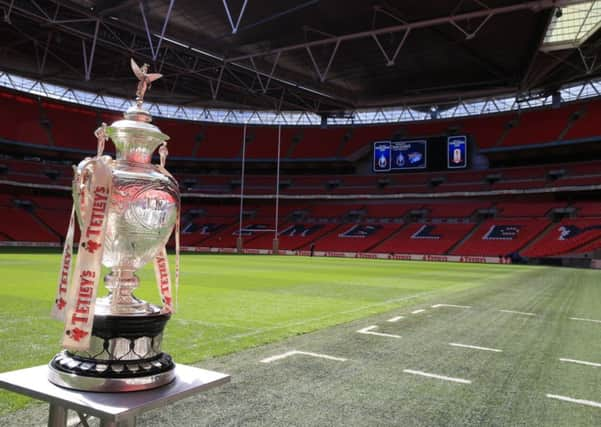David Hinchliffe: Sporting religion that’s truly in a league of its own


It is hard to pinpoint why but perhaps there are important parallels between a sport which has, since it began, struggled for social acceptance and its heartlands in the North which have similarly often faced some pretty tough challenges.
I learned early on in life that this lack of acceptance was institutionalised within British society. Failing my 11-plus examination meant that I played rugby league at a secondary modern rather rugby union at a grammar school. In my late teens I was told that, despite never receiving a penny piece for playing rugby league, I had “professionalised” myself and was banned from rugby union for life.
Advertisement
Hide AdAdvertisement
Hide AdRugby league has made remarkable strides forward nationally and internationally since rugby union lifted its century-long bans and proscriptions nearly 20 years ago, yet it is still a very long way from overcoming long-standing prejudice and bias against it in the British establishment and media.
The sport held a hugely successful World Cup competition in this country last year but where, for example, were the Royal Family in the capacity crowd at Old Trafford for the final? A similar absence from Twickenham during next year’s union version would trigger a constitutional crisis.
But rugby league’s exclusion from the top table has contributed to an ethos within the game which has often been the envy of other sports. Its strong sense of inclusivity has embedded this quality within the heart of the sport.
It was no mere coincidence, for example, many years ago that while British rugby union and cricket teams were controversially breaching the sporting boycott of apartheid South Africa, Great Britain’s rugby league team was the first national side in the country to have a black captain.
Advertisement
Hide AdAdvertisement
Hide AdIn more recent years, the Rugby Football League’s Respect agenda has similarly led the field in articulating the central values underpinning the game at all the levels at which it is played. From basic principles, such as the respect for the authority of the referee, for which rugby league has always been renowned, to the discouragement of unsporting behaviour, these key tenets of the game are at the heart of what the RFL are striving to encourage.
It would be wonderful if every other sport similarly had, as a central principle, the need to respect the rights, dignity and worth of every person.
It is particularly significant that one of the boom areas of the sport has been in the Armed Forces, which until 20 years ago, outlawed rugby league. Now it is not just accepted but, at senior levels, referred to in the most positive terms as an exemplary activity precisely because of the values it encompasses.
The former chairman of Army Rugby League, Lieutenant-Colonel Jeremy Bethel, noted recently that the ethos of the game and the military ethos are both intertwined and complementary. “Stand up for your mates, and be counted,” seen in 13 players in a line on the field of play in Aldershot, is reflected in the patrols around the fields of Helmand Province, and vice versa, he suggested.
Advertisement
Hide AdAdvertisement
Hide AdThere is another area as well where rugby league, in my view, leads the field. I know few, if any, other sports where the leading players – the star names – remain modest, unassuming and approachable.
I have the privilege of knowing personally many of the legends of the sport and, to a man, they have their feet on the ground and have never forgotten where they came from. So many of the game’s past stars continue to live in the very same communities they proudly represented on the field and I know that several of the Castleford legends from that locality have been brought in by the club to motivate the current side during its highly successful current season.
And Castleford – playing big city neighbours Leeds at Wembley today – epitomises the kind of community where rugby league represents much more than just a game. In Cas it is the equivalent of a religion and, against a background locally of the impact of decades of industrial decline and recession, it is the local rugby league team’s performance this year that has put a smile back on faces in the town.
As a lifelong Wakefield Trinity supporter, I should be in the neutral corner of the crowd at Wembley today, but my passion for British sport’s very worthy underdog – rugby league – has led to a very proud, lifelong affinity with the unfashionable. So whisper it quietly, but I shall be absolutely delighted if Cas pinch the Cup today!
David Hinchliffe is a former Wakefield MP and lifelong rugby league fan.